Regardless of tenure, learning a new language is akin to climbing a new mountain. There are new challenges, unfamiliar domains and a whole community out there to discover!
There are many reasons to learning a new language, which include (but are not limited to):
- You are starting out in programming.
- You have a personal interest in a new language.
- Work or study requires you to learn a new language.
- You wish to build within a new technology that is required or best supported in another language.
In today's post, we're going to go through some of the empirical lessons I have learned from continuously being thrown into the art of language learning.
What are my credentials for being an expert on this?
I certainly do not consider myself an expert in this domain, nor do I consider myself to be equally strong in all the languages I have shipped to production. I simply just had to learn a myriad of languages for a number of reasons that I feel can be very relatable to others.
My language learning journey so far has looked like so:
- Starting at University, it was a requirement to learn Java, Python, C, C#, C++, R, Assembly and Haskell at various points (depending on the subject). Each of these weren’t personally by choice, but by requirement.
- My first job while at university was in iOS development. This initially required learning Objective-C and, at a later date, Swift.
- My first job outside of university was in web development. At this time, it meant adding in JavaScript and PHP to the list of languages I had to conquer. As this job continued over the years.
- When starting my current job at Culture Amp, I’ve had to at times write in Ruby, Elixir, Elm, ReasonML and Kotlin. This is also probably a great time to state that none of these are my strong point, but certainly have been a requirement during my short tenure.
- I took personal interest in learning Golang and Rust because, let’s face it, Rust is super awesome and Golang was approachable and a great alternative for some web server work I was doing in my personal projects.
The above does not include other DSLs or supersets of languages (ie TypeScript) that I’ve had to learn along the way.
To stop anyone from feeling like an imposter, I feel there are some important things to also disclose at this point:
- I am not some coding wizard. My strength in each language varies greatly. Some are still incredible weak in my opinion, but had a requirement for a particular project or to get something done short-term.
- I truly believe in the "use it or lose it" reality. I may have spent a significant amount of time in a language like Objective-C early on, but if you asked me to write a "Hello, World!" example for now, the first thing I would do is Google or go back to my notes. Yes, if you’ve learned it before you can pick up quickly again, but memory is fallible and no one is spending every waking hour practicing languages they no longer use — especially when life has so many nicer things to offer.
At first, I started from someone flailing about trying to learn a language. Now I am someone who now follows a very specific pattern to wrapping my head around a language.
Some of these lessons will hopefully go into helping you on your own journey.
Wholeheartedly Follow the Pareto Principle
This first tip is simply a principle that is at the forefront of my paradigm when taking on a new language. As explained by our best friend Wikipedia:
The Pareto principle (also known as the 80/20 rule, the law of the vital few, or the principle of factor sparsity) states that, for many events, roughly 80% of the effects come from 20% of the causes.
When it comes to learning languages, I paraphrase that principle to mean "Getting to 20% mastery of a language will equate to 80% of what you wish to use the language for."
This means that you don’t have to become the be-all-and-end-all of a new language. If you wish to become the next expert on the panel, fantastic. There are some I know who are so good at what they do in their field.
Personally, I like the mantra "Jack of all trades, master of none, oftentimes better than a master of one". You’ll come to find during your coding journey that not every language can do everything.
There are two languages I genuinely do think can do so much for you, but I’ll get to that at the end.
Keep first principles at the forefront of your mind
While this post won’t go deep into First Principles, it should be at the forefront of what you use to understand the choices that have gone into a language’s design.
Some of the principles to think about from my developer notes website below include:
- SOLID - Single Responsibility Principle, Open-Close Principle, Liskov's Substitution Principle, Interface Segregation Principle, Dependency Inversion Principle
- KISS - Keep It Simple Stupid
- DRY - Don't Repeat Yourself
- YAGNI - You Ain't Gonna Need It
- Composition > Inheritance
- Separation of Concerns
- Avoid Premature Optimisation
- Refactor Refactor Refactor
- Clean Code > Clever Code
- Occam's Razor - Does the benefit outweigh the cost?
- Least Astonishment Principle - Naming should come as no surprise to what it does
- Law of Demeter - Divide responsibility between classes
While I will not go into them in depth here, it is certainly worthwhile reading into them and also challenging them yourself.
Become familiar with the language's documentation
"Give me six hours to chop down a tree and I will spend the first four sharpening the ax."
Abraham Lincoln was quoted for the above, and it is certainly sage advice. Before getting too deep into learning a language, become familiar with the language’s official resources.
Don’t think too hard about the "four hours of six" from the quote — it’s not about spending hours on the documentation. It’s about learning where to go to find more information on the standard library and methods for things such as manipulating strings and arrays.
It will come incredibly handy for the next step when you get your feet wet.
If you are a Mac owner, consider investing in Dash. It is my goto resource, particularly when starting out in a language and has great integrations with some IDEs such as VSCode.
Learn the baseline and practice, practice, practice
When I refer to "the baseline", I am talking about some of the core ideas that are common to every language:
- Declaring variables and constants
- Data Types
- Functions
- Comments
- Control Flow
- Data structures
- Common methods and functions for string/array/object manipulation
- RegExp
The more tenured you get, the more you start to see common patterns and get complacent. This is the last thing that you want. While the else/if and variants of a switch may be easy to grasp, applying the small variants of the keywords and structures in practice is something entirely different.
I particularly highlight number six to eight. Six and seven are integral to getting up and going at work. You may already understand, but next-to-everything is stored in object/map/array data structures of some kind. Learning how to store these and then apply the language methods to traverse and manipulate these data structures is a huge part of the battle and the previous step of understanding the documentation will help you a lot with this.
As for regular expressions, it can be the most undervalued tool in a programmer’s tool belt. Particular with string identification or replacement. RegExp is an incredible tool (particularly for coding exams) and worthwhile exploring the "how-to RegExp" in your chosen language.
To speed up the learning of the baseline, there are two incredible tools I will go to in order to practice: the language REPL (read-evaluate-print-loop) and online resources for practicing algorithms.
Use the REPL
Using a language REPL is a great way to get familiar with data types and simple manipulation. I use it all the time when I need to quickly sense-check my memory of how to do something or evaluate a short example before implementing it into something more complex in my work.
The REPL is your best friend for getting starting quickly with understanding things such as the data types and simple, short methods.
Use online sources to practice algorithms
As for quickly practicing and using the common methods, data structures and regular expressions that I mentioned, I’ve personally found the best way to do this is use online learning resources and coding tests.
A number of sites online or problem sets that you can pull locally can help you practice:
I personally use HackerRank as my first goto. Why? While the tests have varying support for the different languages as you go along, I find it to support the most for what I have been working on so far and being able to repeat the same tests in different languages is a great way to understand how to write an implementation of an algorithm in different languages.
Exercism.io enables you to download the coding tests to your local machine, which is amazing. Exercism has test suites that are downloaded as well, so it is a great way to get some exposure to unit testing in your language of choice… which brings me to my next point.
Learn Testing Early and Often
Being able to write effective tests is a universal skill and something where testing paradigms can be brought across from previous languages you have learned. Once you feel comfortable with some of the language basics, you should take this time early in the journey to unit testing for that language.
It is also a great way to sense check your understanding of what you have learned so far. This is a great time to learn and understand error handling and really check that you understand your data types and their limitations!
For example, if you are writing a simple function that returns a uint8 in Rust (0-255), write tests for that function to see what happens when you pass the wrong data type or force that function to return a negative number or something above 255. Is that even possible? If not, why not?
What happens when you try doing something similar in a dynamic language like JavaScript, Ruby or Python? Have you managed to catch those edge cases?
Being able to write unit tests also enables you to slow through what you are trying to achieve in what you are writing. It enables you to truly understand the language quirks, and when something fails that you did not expect, you will be glad you took the time to learn the why.
As for the often — once you have understood how to write the unit test, write them as often as possible.
At this stage of the journey, you will have conquered such a significant part of the foundation that you will be incredibly surprised by what you can do! Crazy, right?
The next step now is such an integral one, but something I also feel is constantly overlooked when it comes to posts such as these.
Learn how package management works for your language
Bundler, Cargo, Yarn, NPM, Cocoapods, PipEnv, NuGet, Gradle, Hex. What do all of these have in common? They are all tools that are key for installing and managing packages across the different language ecosystems.
If you’ve used even one in your time as a developer, you realise the utmost importance they play in your various projects.
I will keep this section short, but go discover what tools for package management your language has.
The bare minimum is to learn how to install and manage these dependencies, but I would recommend learning how to publish and distribute your own packages while you are here.
I would also highly recommend checking out the resources that lead you to the most popular projects and packages for the language. Thing things like JSON/YAML parsing libraries, popular servers, popular utility libraries etc. This becomes a nice segway to the next point.
Check out the Awesome GitHub repo for the language
The original awesome repo is an incredible resource to find related awesome repos for different languages and technologies. The Programming Languages section is a treasure trove of links to incredibly resources for a language.
I place this part of the journey here because it this is the time where you can truly appreciate some of the content out there and begin to create your own applications.
These links can include (but are not limited to):
- Applications
- Development tools
- Libraries
- Blogs
- Resources
- Podcasts
- People to follow
It is a great way to find resources you didn’t know you were looking for, to find projects that you can learn current best practices from and be inspired to start writing your own projects.
Which leads me to the last (and most glorious point):
Build your own X
It is time to apply everything you have learned so far and start smashing out some projects.
The build your own x repo is an absolute gem when it comes to finding ideas and projects to build. I highly recommend checking the repo out just to see what is on offer — it can provide examples on how to build things like your own block chain to your own database.
The examples provided can be language-specific, but it is an incredible resources never-the-less.
Personally, when learning a new language, I generally try to tick off three projects. These three projects are either the core of why I am learning the language or have been the X factor when it came to performance reviews — and they are not crazy complex projects.
Build a CLI tool
Learning how to pass arguments and flags into a script in your language is highly underrated. The best work I have ever done has come down to writing simple CLI tools to enhance the developer experience in the teams that I have worked on.
CLI tools I have built for projects include things like:
- Web scraper bots
- PDF renderers
- Invoice generators
- Code generators
- Interactive news through the CLI
- Infrastructure stand up/tear downs
Learning how to write a CLI tool effectively is an underrated superpower.
Learn how to read/write files
Easily the most underrated skill while I was at university. They legitimately spent less than five minutes on this in my introduction to programming class and had some ridiculous example of writing a simple .txt file.
Little did I know that all these years later it would become the source of almost every promotion I have ever gotten. Being able to parse, manipulate and re-write files will open your capabilities to no-code/low-code solutions and just straight-up royalty levels of respect.
Build a web server
This may be the reason you are learning the language in the first place, but regardless it is a key.
Even if you are not building a fully-fledged REST web server, being able to write a simple RPC can empower you to remotely run scripts and automate so many things remotely that you'll feel a huge weight come off your back.
Epilogue
The above isn’t the complete list to language mastery — it is simply the pattern that I have followed over the previous years that have come with great success.
There are also other important elements that I didn’t cover: finding the best books to read, the best online courses as recommended by the community etc.
I find that these are things that others already understand are important or have incorporated as part of their journey.
I personally find that those books and online courses are best approached once you are at a level that you can critically understand and follow along as they dive deeper into a language and specific frameworks.
Hopefully these tips will aid you on your next journey to conquering a language!
Is there any anything that I have missed? Any other tips and tricks for others to read? Share them with everyone below!
Edit (July 6th 2020): Daniel made such an important point in the comments that I missed! Definitely, definitely, definitely add in a point early on to learn effective debugging. Even though I managed to forget, you will certainly come to a point where you realise that you will need to know it.
Edit (July 7th 2020): bgk889 pointed out in the comments that I didn't speak to the two languages that between them can do a significant amount. Another oopsie! Those two languages are JavaScript and Python. Between those two languages, you have the capability to do development in so many different areas and both languages are approachable. When I speak highly of them, please note that I am not saying they are the best choice (or the right choice) for a project. When I am working on smaller projects for myself or launching small products, they are great! I use JavaScript for web development, serverside work, mobile development, CLI tools and building bots (particular those that require headless browsing) and Python for data science, machine learning and IoT projects. The "efficiency" they do provide is speed-to-launch and ease-of-use. Both are very good for that and my plant watering system thanks them both.
Resources and Further Reading
Image credit: Dlanor S
Originally posted on my blog. Follow me on Twitter for more hidden gems @dennisokeeffe92.


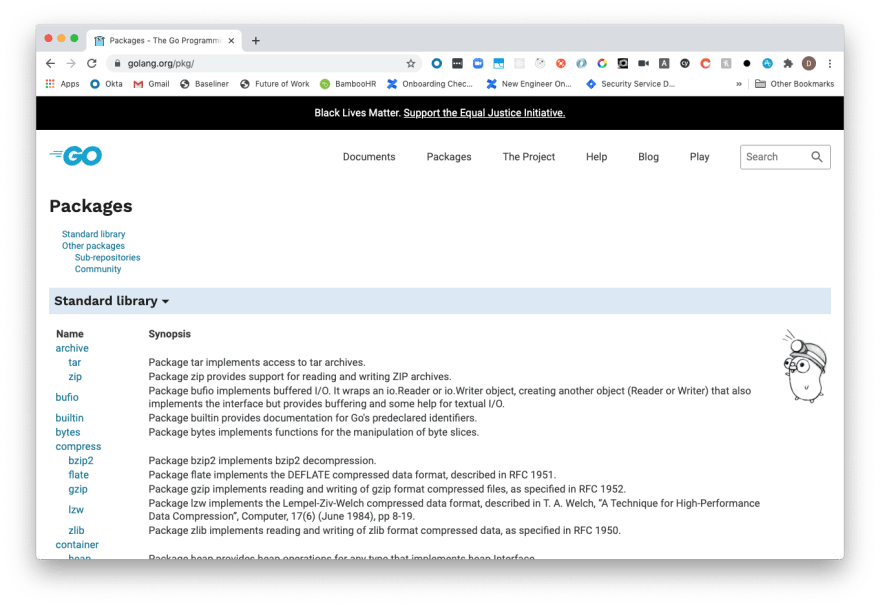
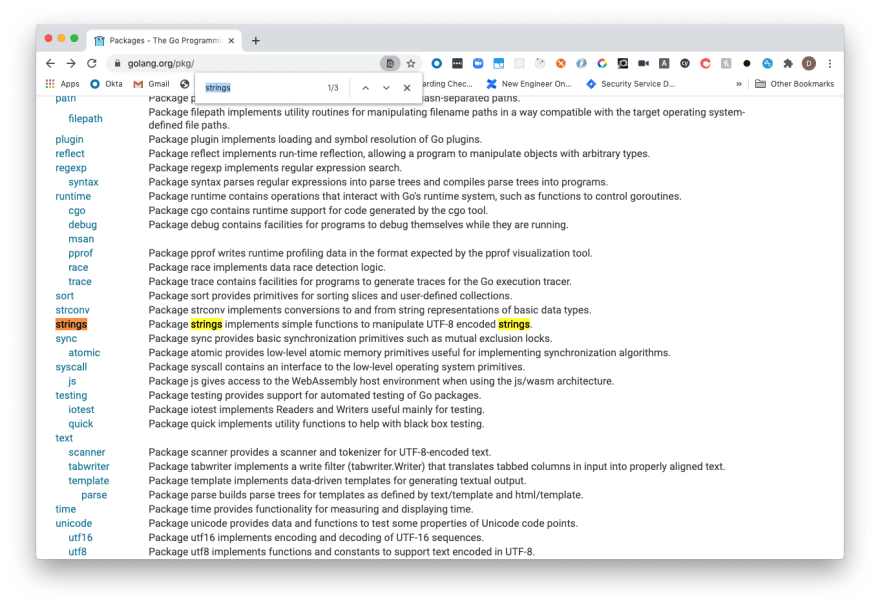
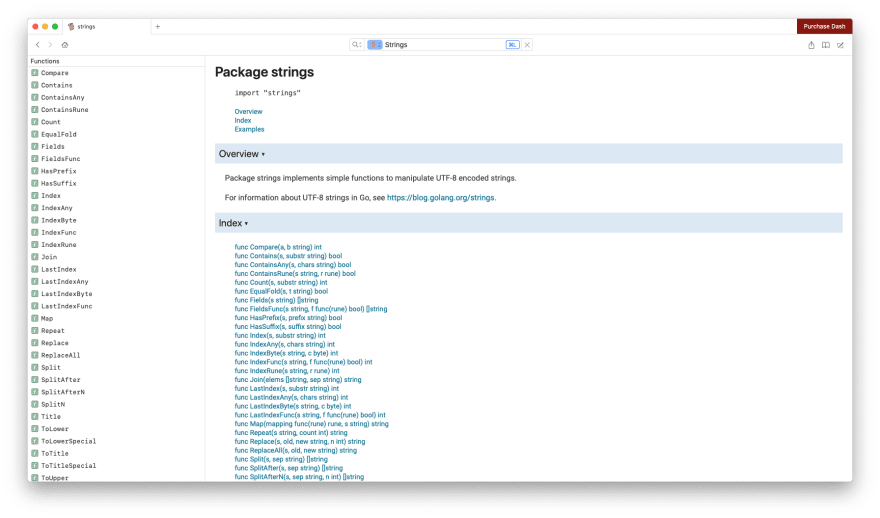
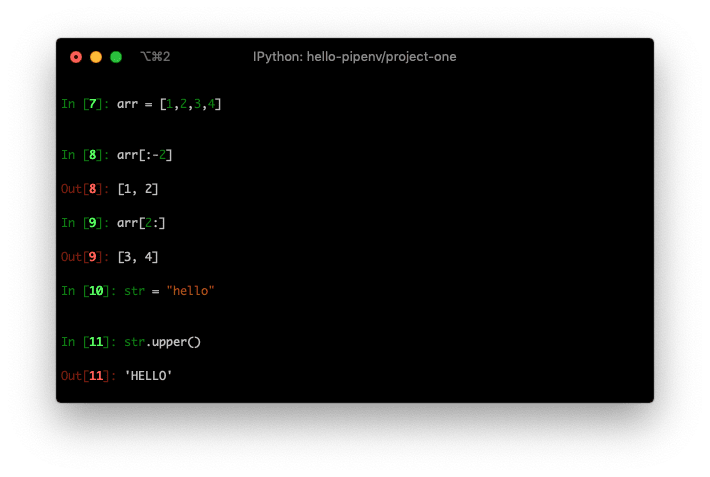
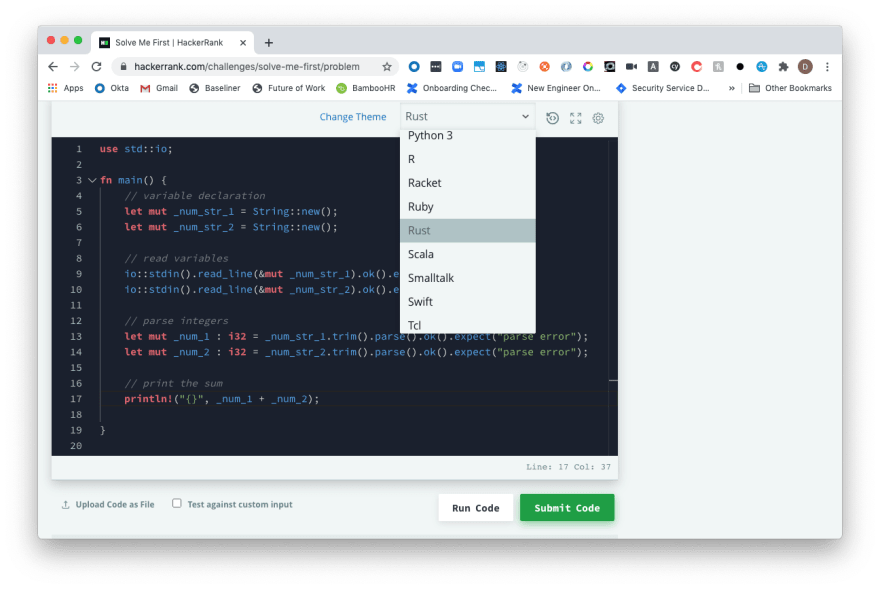
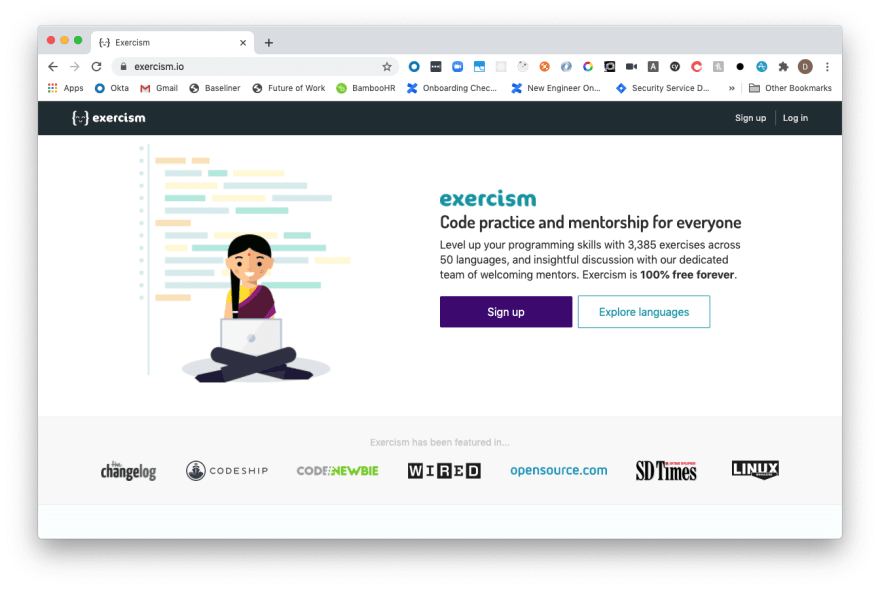
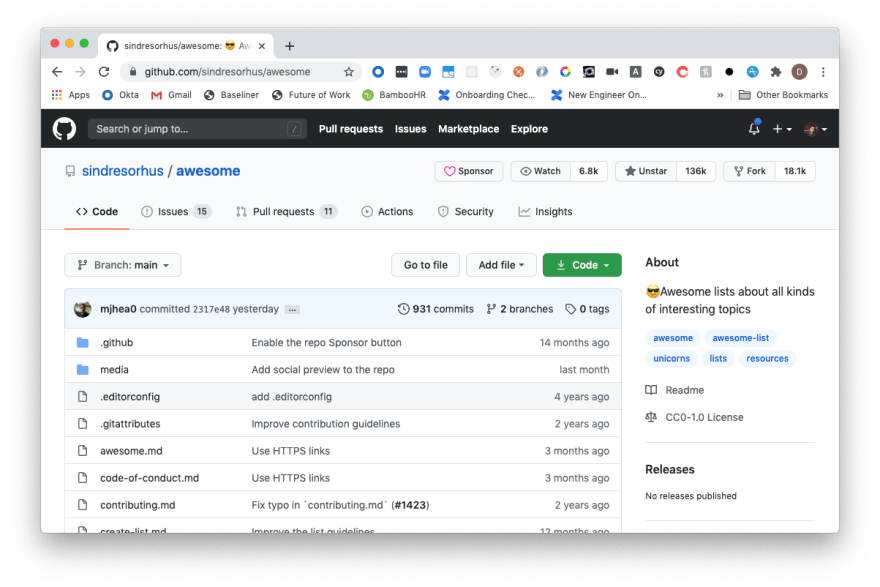
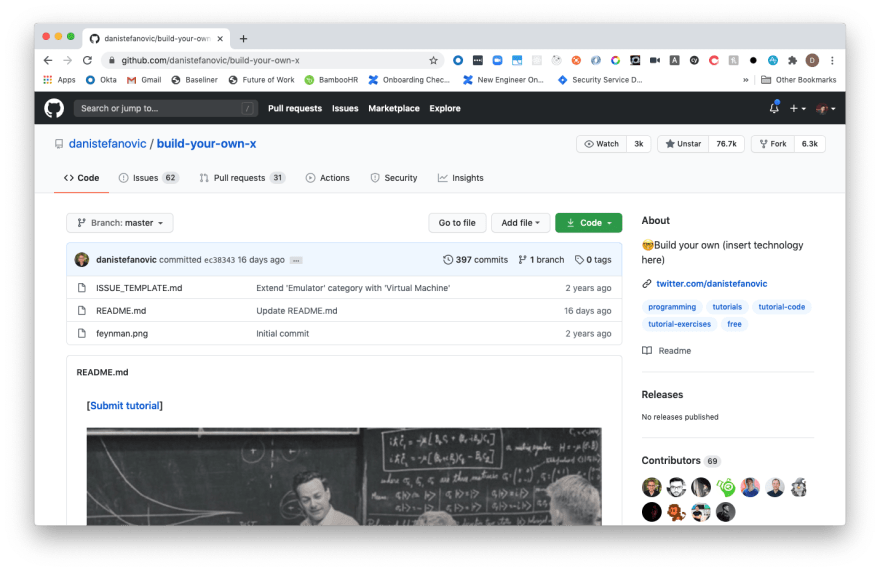

Top comments (13)
Nice article! I’d suggest to add „debugging“ - I always regret if doing it too late..
^ Oops! This is such a really important point and a big missed opportunity in the article 😰
For anyone that makes it down here in the comments, definitely add in a place to learn effective debugging!
Very good shout! Thanks!
I ended up adding a quick shout out about this at the bottom of the article! Yew!
Great summary Dennis! I think folks trying to pick up a new language can easily get overwhelmed initially. Documentation can ease some of this burden but it can also make it worse as well depending on the language.
I think creating is the best method of learning for me. I love the idea of building easy to use CLIs in a new language as I really think that a CLI can cover that 20% of a language that your likely going to use everyday.
Yep totally get this! Maybe I was remembering the Rose-coloured memories when writing the part about the docs.
I’ve definitely had my fair share of moments being overwhelmed by the documentation for some languages when trying to get into it too early in the journey.
This is very well written.
Bookmarked for future reference. Thanks
There are two languages I genuinely do think can do so much for you, but I’ll get to that at the end.
Did you get to that in the end or did i miss something important ?
Oh, you are absolutely right! I'll update the ending of the post now but those two languages are JavaScript and Python.
Great article!
Very well written. just for fun, instead of becoming dangerous, it could have been, how to make any prog language lovable or a friend.😊
Ahhh, good point! From now on, I will start using adjectives with more positive connotations in the title 😊
This is very well written and useful.